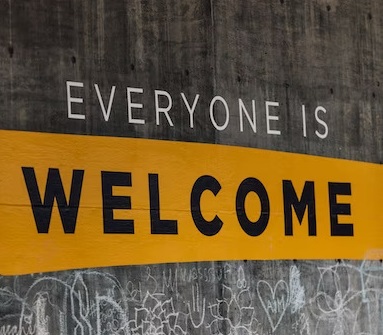The president of Centro Astalli, Father Camillo Ripamonti, appeals to “foresight” and “courage” in the introductory pages of the 2023 Annual Report on Refugees, now in its 22nd edition.
By Miriam Rossi
Characteristics are needed to look to the future not only of the more than 100 million people forced to flee their homes in 2022 but also of the many millions who find in them caregivers, bricklayers, laborers, waiters and so many other decisive roles in a society, such as the Italian one, which is aging and in persistent demographic decline. Characteristics that, unfortunately, Ripamonti continues in his analysis, do not seem to emerge from either Italian or even European Union governance.
The Report was presented on April 14, 2023, in Rome, just days after a “state of emergency on immigration” was decreed by the Meloni government following the “exceptional increase in the flow of migrants through the Mediterranean routes. The solution allows for the release of funds and powers that will allow for more rapid management of the critical issues that have emerged with the multiplication of arrivals. “The numbers provided by the Minister for Civil Protection and Sea Policies, Nello Musumeci, count 31,200 migrants since the beginning of 2023, registering +300% compared to last year, and fill all the hotspots currently present in the country. These are not new numbers, however (they are when compared to those of the Covid years that reflected that surreal global immobility): in 2016 and 2017, President Ripamonti recalls, there were 27,000 and 37,000 people landed in Italy, respectively. Even then, the answer was the shameful (and still in force) agreement with Libya. “How long then have we known about the limited capacity of the Lampedusa hotspot? 400 places, we are reminded of it at every news broadcast,” Ripamonti says. And what has been done to provide a solution to the problem in recent years? Nothing, except to eliminate sea rescue and accuse the humanitarian organizations that have been active of conniving with the exploiters of human trafficking.
Welcoming refugees with dignity is possible and desirable, the Report demonstrates with numbers referring to the integration operated through its centers that also give a glimpse of the evident contribution made by refugees themselves to the Italian welfare state. Thus, it seems that Italy (and the EU) itself does not want to learn its lesson, not even in the aftermath of what happened following the Russian invasion of Ukraine.
In fact, the Report also highlights a virtuous case of reception, that of the 170,000 Ukrainian citizens who have arrived in Italy since the outbreak of war last February 2022. For them, temporary protection was activated, immediate access to the world of work, opportunities to receive economic contributions directly, and an impressive system of reception at the level of facilities, language facilitation, and school placement. That is to say, what national (linked to the
recognition of the right to asylum of Article 10 of the Constitution) and European norms have put in place, without actually preventing their protection with additional limiting legal provisions and with deliberately bureaucratized and slowed-down forms of implementation.
Afghans, Syrians, Somalis, and Nigerians are also fleeing wars and persecution but none of the above has been activated. Why, the question is also asked at the press conference, has a series A reception system been set up and one that cannot even be called series B, made up of obstacles, bureaucracies and inefficiencies? The Ukrainians who fled the conflict were taken in by family members and friends who were already integrated into the Italian community, white-skinned and Christian, came from a war daily recounted by the media system and were included in a fundamental work system of social and health care of the elderly segment of the Italian population. These are the reasons mainly identified in the Report that arouse bitterness and disappointment.
A human being counts as such, a human being who is forced to flee his or her country also. However, this is not the case in practice. The reception of refugees remains unusual and thus complicates integration. In 2022, 105 129 migrants arrived in Italy across the Mediterranean Sea, including 13 386 unaccompanied minors. The reception system recorded 107 677 admissions at the end of the year: most of these migrants were housed in extraordinary reception centers, which are not always able to guarantee essential services in accompanying pathways and remain oases in city suburbs. Integration in this way remains a blunder: Italian language courses and educational accompaniment should automatically be activated to enable them to guarantee the support they need to find their own space in the country on a social and work level. These are fundamental elements that require public direction rather than being relegated to volunteerism or third sector charity. If for no other reason than not to then continue pointing the finger at refugees and foreigners in general (the poor ones clearly, not the wealthy tourists) as the ones responsible for their own misfortunes in attempting crossings from their distant country of origin and not being grateful enough for the ghost-like conditions in which they are forced by the unbearable burden of bureaucracy. But Prime Minister Meloni’s phrases to the survivors of the Cutro shipwreck do not bode well for a realization of the short-sightedness and cowardice of Italian politics in recent decades.
Let’s take advantage of this article to relaunch the campaign “A UN flag for humanitarian ships”. Those ships are the only hope for thousands of people. They are criminalized by those who, criminals, cynically create the conditions for killing. Securing those ships and those NGOs, which we consider sisters, part of us and of what we do every day, does not mean solving the issues of migrants. It simply means doing what every human being should do: saving lives. We believe it, with the certainty of being right. Read more about the campaign here.






